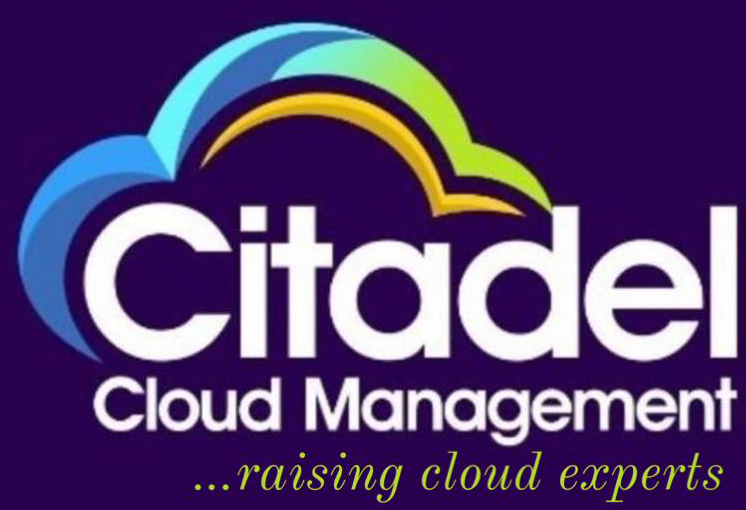
Provide a Guide to Help Prospective Students Choose Between Bootcamps and Traditional College Programs
citadelcloud
Choosing the right educational path is a critical decision for prospective students. With the rise of self-study bootcamps and traditional college programs, students now have more options than ever. This guide will help you understand the differences between these two educational paths and how to choose the one that best fits your career goals, learning style, and life circumstances.
Understanding Traditional College Programs
Traditional college programs have been the cornerstone of higher education for centuries. They offer a comprehensive and well-rounded education, typically lasting four years for a bachelor’s degree. Here’s a closer look at what traditional college programs offer:
Curriculum and Structure
Traditional college programs offer a broad curriculum that includes general education requirements and specialized courses in your chosen major. This structure provides a well-rounded education that covers various fields of knowledge.
Learning Environment
Colleges and universities provide a structured learning environment with scheduled classes, labs, and study sessions. This structure helps students stay on track and manage their time effectively.
Accreditation and Recognition
Degrees from accredited colleges and universities are widely recognized by employers and other educational institutions. This recognition can be a significant advantage when applying for jobs or further education.
Networking Opportunities
College campuses provide numerous opportunities to network with peers, professors, and industry professionals. These connections can be invaluable for future career prospects.
Campus Life and Extracurricular Activities
Traditional colleges offer a vibrant campus life with various extracurricular activities, clubs, and organizations. These activities provide a balanced college experience, promoting personal growth and development.
Understanding Self-Study Bootcamps
Self-study bootcamps have emerged as a popular alternative to traditional college programs, particularly for those interested in technology and other rapidly evolving fields. Bootcamps are intensive, short-term programs designed to equip students with specific skills needed for particular jobs.
Curriculum and Structure
Bootcamps focus on teaching practical skills and hands-on experience. They often skip general education courses and concentrate solely on the skills necessary for a particular job or industry. Most bootcamps last between 12 weeks and six months.
Learning Environment
Self-study bootcamps offer a flexible learning environment, often allowing students to learn at their own pace. This flexibility can be particularly beneficial for those who need to balance education with work or other commitments.
Industry Relevance
Bootcamps are designed to meet the current demands of the job market. They often collaborate with industry professionals to ensure their curriculum is up-to-date with the latest trends and technologies.
Cost and Time Investment
Bootcamps are generally more affordable than traditional college programs and require a shorter time commitment. This makes them an attractive option for those looking to enter the workforce quickly without accumulating significant debt.
Job Placement and Career Services
Many bootcamps offer job placement assistance and career services, including resume building, interview preparation, and networking opportunities with potential employers.
Comparing Traditional College Programs and Bootcamps
To help you make an informed decision, let’s compare traditional college programs and self-study bootcamps across several key factors:
Time Commitment
- Traditional College Programs: Typically require four years to complete a bachelor’s degree.
- Bootcamps: Usually last between 12 weeks and six months, allowing for a quicker transition into the workforce.
Cost
- Traditional College Programs: Can be expensive, often leading to significant student loan debt.
- Bootcamps: Generally more affordable, with lower tuition costs and shorter duration.
Learning Style
- Traditional College Programs: Structured environment with scheduled classes, ideal for those who prefer a guided learning approach.
- Bootcamps: Flexible, self-paced learning environment suitable for self-motivated individuals who can manage their time effectively.
Curriculum Breadth
- Traditional College Programs: Offer a broad education with general education requirements and specialized courses.
- Bootcamps: Focus on specific skills and practical experience, often skipping broader educational content.
Career Outcomes
- Traditional College Programs: Degrees are widely recognized and valued by employers, offering a broad range of career opportunities.
- Bootcamps: Provide targeted skills for specific jobs, with many offering strong job placement services.
Innovative Learning Tools and Platforms Used in Self-Study Bootcamps
Self-study bootcamps leverage a variety of innovative learning tools and platforms to enhance the educational experience and ensure students gain practical skills. Here are some of the key tools and platforms commonly used:
Online Learning Platforms
Platforms like Coursera, Udemy, and Khan Academy provide access to a vast array of courses and tutorials on various subjects. These platforms offer flexibility and convenience, allowing students to learn at their own pace.
Coding Sandboxes
Tools like CodePen, Repl.it, and JSFiddle allow students to write, test, and share code in a live environment. These sandboxes provide immediate feedback, helping students learn by doing and refining their skills through practice.
Project Management Tools
Platforms like Trello, Asana, and JIRA are used to manage projects, track progress, and collaborate with peers. These tools are essential for teaching students how to work effectively in team environments and manage complex projects.
Collaboration Tools
Slack, Microsoft Teams, and Discord are commonly used for communication and collaboration. These tools facilitate interaction between students, instructors, and mentors, creating a sense of community and support.
Interactive Coding Challenges
Websites like LeetCode, HackerRank, and Codewars offer coding challenges and competitions that help students improve their problem-solving skills and prepare for technical interviews.
Virtual Reality (VR) and Augmented Reality (AR)
Some advanced bootcamps use VR and AR to create immersive learning experiences. These technologies can simulate real-world scenarios, providing hands-on experience in a controlled environment.
Frequently Asked Questions (FAQs)
1. Are bootcamps better than traditional college programs?
It depends on your goals and circumstances. Bootcamps are ideal for those looking to gain specific skills quickly and enter the workforce. Traditional college programs offer a broader education and are better suited for those seeking a well-rounded academic experience.
2. How do employers view bootcamp graduates compared to college graduates?
Many employers recognize the value of bootcamp graduates, especially in tech industries. However, traditional college degrees are still widely respected and can offer more diverse career opportunities.
3. Can I get financial aid for bootcamps?
Some bootcamps offer financing options, scholarships, and income share agreements (ISAs). It’s important to research the financial aid options available for each bootcamp you’re considering.
4. Will I miss out on networking opportunities if I choose a bootcamp?
Bootcamps often provide networking opportunities through partnerships with industry professionals, job placement services, and alumni networks. However, traditional colleges offer more extensive networking through campus activities, clubs, and events.
5. Is it possible to do both a bootcamp and a traditional college program?
Yes, many students choose to supplement their college education with a bootcamp to gain specific skills. This combination can be particularly powerful, providing both a broad academic foundation and practical, job-ready skills.
Conclusion
Choosing between a traditional college program and a self-study bootcamp is a personal decision that depends on your career goals, learning style, and financial situation. Both educational paths offer unique benefits and opportunities. By understanding the differences and evaluating your priorities, you can make an informed choice that sets you on the path to success.
Table of Contents
Latest Articles

